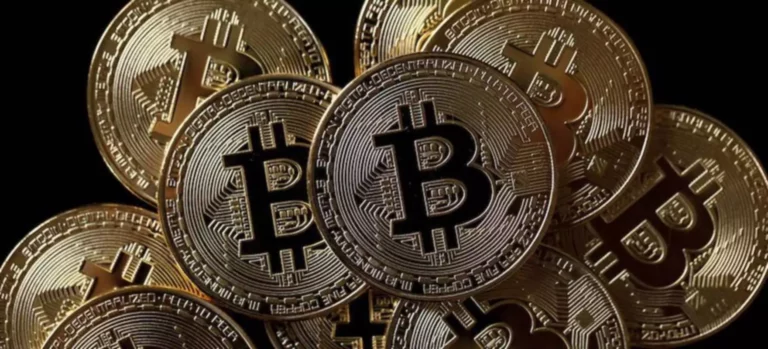Examples Of Personal Blockchain That Dominate The Market
In a personal permissioned blockchain, the coalition of organizations shares the entire network. A non-public blockchain is a kind of blockchain network during which only a single authority or group controls the network. Although personal blockchain examples could seem to be a centralized network, in actuality, they’ll provide partial decentralization. You might imagine from the name personal blockchains require that members are invited to take part and have permissions. Private blockchains are databases that exist in an isolated setting with restricted entry. This type of blockchain is mostly used by large firms and enterprises that want more control of their community.
The absence of a dedicated digital id layer within the growth of the Internet has rendered SSI a major challenge in modern society. Blockchain know-how emerges as a promising solution by enabling the creation of decentralized and automatically verifiable identities. This research contextualizes SSI and analyzes how blockchain know-how facilitates the autonomous management of digital identities. The research concludes by identifying the challenges and opportunities in implementing these techniques for digital identity administration, thus contributing to the advancement of this emerging area. Non-public blockchains are a specialised type of blockchain know-how to be used inside a selected organization or consortium. In Contrast To public blockchains, which are open to anyone and supply full transparency, non-public blockchains operate on a permission foundation, allowing solely licensed members to access and validate transactions.
The blockchain is managed by a governing body that restricts entry to the community and verifies the identities of all participants which promotes belief amongst customers. The limited number of members and nodes speeds up consensus and effectivity, which promotes the scalability of the community. Personal blockchains have fewer individuals and are extra efficient than public blockchains. Their controlled nature and limited nodes facilitates larger throughput and faster transactions.

It signifies that the medical information of patients may be shared from one healthcare system to the following with out lots of fuss. Companies like IBM and Walmart have created a personal blockchain network called Food Belief, which traces meals products from farm to table. This assures product security and authenticity, curbs fraud, and expedites the method of quick product recollects when and where due. Personal blockchains are subsequently a more enticing possibility when their financial establishment, healthcare supplier, or some other regulated business has to manage sensitive data. In this text, we’ll clarify personal blockchains- what they’re, how they operate, their advantages, disadvantages, and a few real-world usages.
However if you need a extra decentralized platform, a public blockchain may be a better choice. There are numerous private blockchain platforms which have been developed to assist these use circumstances. Now, we’ll check out a number of the hottest private blockchain platforms and explore their key options. Non-public blockchains work on the basis of entry controls that limit the people who can participate in the community. Implementing a non-public blockchain involves both initial growth costs and ongoing expenses for upkeep and upgrades. Organizations need to think about the financial implications of setting up the mandatory infrastructure, guaranteeing safety, and probably paying for licensing proprietary expertise Smart contract.
16 Civic
The following principle considerations direct and unrestricted access to digital identity, making certain secure and controlled access to personal data. SSI frameworks exhibit numerous methods for implementing this principle, with most reaching full compliance (1.0) via public blockchain deployments. UPort, ION, ShoCard, Jolocom, Civic, Idena, and KILT all make the most of public blockchains to ensure unrestricted access to digital identities. UPort operates on Ethereum, managing transaction costs by way of its Sensui service (Eddine et al., 2021; Naik and Jenkins, 2020b). ION and ShoCard leverage the Bitcoin blockchain, with ShoCard’s architecture adaptable to other ledgers (Identity Basis, 2022a; Gilani et al., 2020). Civic integrates with both Ethereum and Solana, enabling rapid integration of its Civic Cross token into dApps Civic (Developer Hub, 2020).

How Are The Several Sorts Of Blockchains Utilized In Business?
It is particularly well-suited for monetary purposes due to its ability to help fast and safe transactions. Businesses typically prefer EOS.IO for its efficiency and sturdy performance. Sovrin deploys an SSI service on a federated blockchain, implementing a novel type of node called stewards. These stewards are trusted organizations responsible for sustaining the community and validating transactions (Sovrin Foundation, 2019). The blockchain is overseen by the Sovrin Foundation, which plays an important role in making use of the mandatory public blockchain vs private blockchain governance framework for decision-making in network operations and guiding its evolution. The authentic source code was generously contributed by the Sovrin Basis to the Linux Basis, ensuing within the creation of the open-source project Hyperledger Indy (Hyperledger Foundation, 2022).
With efficient knowledge governance, you probably can ensure safety, compliance, and information high quality. This includes access controls, audit trails, and knowledge extension insurance policies, thereby maintaining knowledge privateness and trust. Non-public blockchains are managed by a government that permits for higher management over network operations and governance. This is one of the most significant stages of private blockchain growth, guaranteeing the safety and reliability of the system.
Many industries use them to streamline operations and enhance security. A private blockchain is a type of blockchain network that restricts access to just a few users. Self-sovereign id (SSI) is an identification administration model the place people preserve management and custody of their identification attributes. They can either generate verifiable credentials or get hold of them from an issuer to present them to a verifier. The belief relationship between the issuer and verifier is established through registered cryptographic proofs. Determine 1 illustrates the challenges and context needed for self-sovereign digital identity management.
- This isn’t only more efficient than the standard techniques, but it additionally enables healthcare providers to satisfy data safety legal guidelines similar to HIPAA.
- To allow you to do that, CFTE offers you the instruments you should grasp the proper skills in digital finance.
- ShoCard allows proprietor authorization for third-party access to PII, however notably, ShoCard servers may entry attributes with out explicit consent (Liu et al., 2020).
Public blockchains are decentralized with no central authority, and nodes are answerable for maintaining the community. In The Meantime, personal blockchains are partially decentralized, with a government managing the community. Public blockchains are at risk for a 51% assault, while non-public network centralization eliminates that danger. Are you’re a business proprietor and seeking to make the most of the effectivity and safety of private blockchains? Partnering with high blockchain development corporations can make sure that you implement the most https://www.xcritical.com/ superior and tailor-made blockchain options to satisfy your specific wants.
That could also be true, but the platform does come with all of the features except it’s solely non-public. But for enterprise firms, a public blockchain isn’t that appropriate as there is a lot sensitive data that can get leaked. And so, private blockchains or enterprise blockchains are extremely in style amongst high-end corporations.

As the private blockchains present pre-mined coins, we are ready to call it power efficient compared to the general public. It easily integrates with different methods, enhancing its utility across numerous applications. The platform offers sturdy privateness options, which is essential for businesses dealing with sensitive data.
Adresa
Hotel Korsal
Šetalište Frana Kršinića 80
20260 Korčula, Hrvatska-

-

Kontakt
Telefon: +385 20 715 722
E-mail: info@hotel-korsal.com

